
SASABE, ARIZONA - JANUARY 20: The U.S.-Mexico border fence ends with a gap on January 20, 2025 east of Sasabe, Arizona. Nightly, immigrants pass around the fence after smugglers transport them to the remote area in the Sonora Desert. Although immigrant crossings are down sharply, the incoming Trump administration has vowed to complete the wall and "seal" the border completely. (Photo by John Moore/Getty Images)
Tucson, Arizona – To raise awareness of the countless migrants who lose their lives attempting to cross into the United States, several activists embarked on a seven-day hike through the Sonoran Desert — a 75-mile (120-kilometer) trek from the border, starting in Sasabe, Sonora, Mexico and ending in Tucson, Arizona.
This is the 22nd annual Caminata Migrante, or Migrant Trail, and is composed of activists and members of various organizations. The walk takes place along State Highway 286 until reaching Three Points, from where they continue north toward Tucson.
The remains of 4,384 people have been found in the Sonoran-Arizona Desert since 1990, and the remains of 154 migrants have been found between May of last year and this May, according to Saulo Padilla, a member of the group involved in the walk.
Padilla, who has been a participant for the past 15 years, is the coordinator of the Mennonite Central Committee's migrant education program. He said the walk began on Monday, May 26, and will end on Sunday, June 1, at John F. Kennedy Park, located at 3700 S. Mission Road in Tucson.
According to Padilla, 43 people joined this year’s hike. Approximately half have participated in previous walks, but for the rest, this year marks the first time they endure the harsh realities that migrants encounter crossing through the Sonoran Desert. Some participants join from various parts of the United States, including California, Chicago, New York, Florida and Indiana.
“In the first 24 hours, some people already had blisters on their feet and couldn't walk anymore. If we were migrants, some would have already stayed. This walk opens our eyes to the injustices we inflict on migrants,” Padilla said.
“I return every year because when we walk, I think a lot about the families who lost a loved one here, especially those who have strangers crossing their paths,” he said.
He explained that they walk during the day and arrive at a pre-arranged camp in the afternoon. They sleep there and continue their journey in the morning. On Friday, they had planned to wake up at 3 a.m. to start walking at 4 a.m.
A high temperature of 100 degrees was expected in Tucson, Arizona, on Friday, according to the National Weather Service.
This story will be updated.

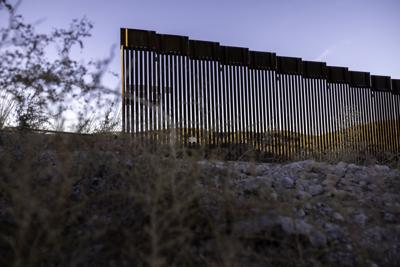
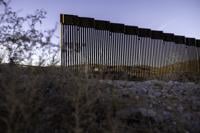

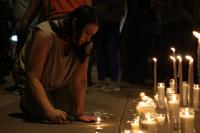

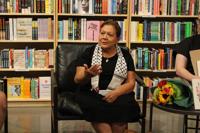



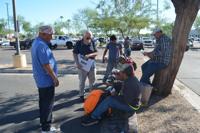




(0) comments
Welcome to the discussion.
Log In
Keep it Clean. Please avoid obscene, vulgar, lewd, racist or sexually-oriented language.
PLEASE TURN OFF YOUR CAPS LOCK.
Don't Threaten. Threats of harming another person will not be tolerated.
Be Truthful. Don't knowingly lie about anyone or anything.
Be Nice. No racism, sexism or any sort of -ism that is degrading to another person.
Be Proactive. Use the 'Report' link on each comment to let us know of abusive posts.
Share with Us. We'd love to hear eyewitness accounts, the history behind an article.